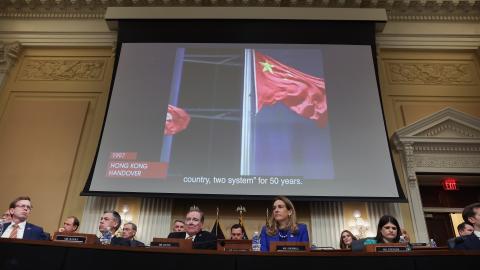There is a growing bipartisan awareness in the United States that the totalitarian global ambitions of the Chinese Communist Party (CCP) make it the most dangerous threat the free world has faced since the Cold War, and perhaps ever. In recognition of that threat, U.S. President Donald Trump’s National Security Council announced a comprehensive China strategy in May 2020 and later declassified its Indo-Pacific strategy. These documents were built around three key objectives: protecting the U.S. homeland, preserving the peace through a policy of strength, and advancing American prosperity by reshoring the key pillars of the U.S. economy.
To his credit, U.S. President Joe Biden has implemented the broad outline of his predecessor’s strategy and has scored some notable successes in confronting an increasingly aggressive China. Among them are the AUKUS defense agreement with Australia and the United Kingdom, a ban on advanced semiconductor exports to China, the blacklisting of the chip maker YMTC and 21 other major Chinese players in the artificial intelligence chip sector, and a series of bilateral agreements with Pacific allies to improve mutual defense.




















